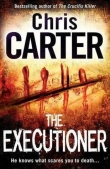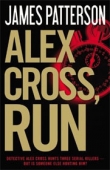
Текст книги "Paint It Black"
Автор книги: P. J. Parrish
Жанры:
Триллеры
,сообщить о нарушении
Текущая страница: 13 (всего у книги 20 страниц)
Chapter Thirty
When they got back to the office, Candy was waiting for them. Wainwright took one look at his officer’s face and asked, “Now what?”
“There’s a woman waiting to see you.”
“About what?”
Candy was staring at the bang stick in Louis’s hand. “She says she might know who the homeless man is. I put her in your office, Chief.”
Wainwright went into the office. Louis detoured to pick up the case file and joined him. The woman was sitting in a chair in front of Wainwright’s desk and turned to look as they came in. She was about twenty-five, a pretty woman in a green business suit, with close-cropped black hair, gold earrings, and the same tawny-toned skin as the homeless man. Her large brown eyes went expectantly from Wainwright to Louis.
Wainwright extended his hand. “I’m Sheriff Wainwright. You’re here about a possible identification?”
She took his hand, nodding. “My father,” she said softly.
Wainwright glanced back at Louis. Louis set the bang stick against a cabinet and came forward.
“I’m June Childers,” she said. “My father’s name is Harold. Is he—” She paused, seeing the look on Wainwright’s face. Her eyes filled with tears.
Wainwright pulled his handkerchief from his pocket, saw it was stained, and wadded it up. Louis rose, went to the bathroom, and came back with some tissues. Shit, he prayed June Childers wouldn’t lose it like Anita Quick did. He couldn’t stand another one.
But June Childers’s eyes were dry and she managed to give Louis a small smile as she took the Kleenex. “I saw an article in the Palm Beach Post,” she said. “I live over in West Palm.” She hesitated. “It said you had a man here with a tattoo of a dog on his arm.”
“There’s also a word.” Wainwright said. “Can you tell us what it was?”
“Bosco,” she said softly.
Wainwright glanced over at Louis. He rose and went to the watercooler. For a long time, it was quiet in the room.
Then Wainwright spoke, without turning. “Miss Childers, did your father have any other identifying marks?”
She turned to look at Wainwright. So did Louis. Other identifying marks? Wainwright knew there were none except the tattoo. What was going on here?
“No,” she said.
Wainwright filled a Dixie cup and slowly took a drink. He stood there, sipping and staring at the wall. June Childers looked back at Louis, her eyes questioning. Louis pulled a photo out of the file.
“Is this the tattoo?” he asked.
The photo showed only a forearm with a ruler lying next to it, but something changed in June Childers’s eyes as she stared at it.
“It was our dog’s name,” she whispered. “Bosco . . . you know, like that chocolate stuff kids drink.” Her eyes welled again.
Louis looked up at Wainwright. There were still routine questions that needed to be asked, but Wainwright was just standing there, staring at the wall.
“Dan—” Louis said.
Wainwright looked at him, as if coming out of a trance. “Let me know when you’re done,” he said. He tossed the cup in the trash and left, closing the door behind him. Louis stared at the door in disbelief for a moment.
Shit. Not again.
For a second, he considered going after Wainwright. But he turned back to June Childers. She wasn’t crying, but she still had the spent look of someone who had just come to the end of a long and wearisome journey.
“Miss Childers, do you know where your father was living?” he asked.
She shook her head. “I haven’t seen him in almost ten years,” she said softly. “We—my brother Billy and I—we lost track of him. He wasn’t himself after Mama died and we looked, but we lost . . .” Her eyes welled but she pulled in a deep breath, keeping her emotions inside.
“He was from West Palm Beach?”
She shook her head. “We grew up in Clewiston, west of there.”
“Why do you think he came over here?” Louis asked gently.
“When we were kids, he used to bring us here,” she said. “Daddy loved it here. He loved the water.”
“If you could, can you please supply us with any other records you have . . . dental or medical records, maybe?”
She nodded.
Louis hesitated, not knowing what else to ask. There was nothing she could really help them with. She pulled in a deep breath and looked at him.
“Is there something I have to do . . . somewhere?” she asked.
He shook his head. “It’s not necessary to identify him in person.” He saw the next question in her eyes. “I think it’s better if you don’t see him. But I’ll take you there if you want.”
For a second, she just looked at him. “I understand,” she said softly, looking down at the wad of tissue in her hands. She rose slowly and slipped the strap of her purse over her shoulder.
“Is there someplace I can make a call?” she asked.
“My brother wanted to know.”
Louis nodded to the phone on the table. “Just dial nine. I’ll be outside if you need anything.”
She gave him a small smile and held out her hand. “Thank you, Officer—”
“Kincaid,” he said, taking her hand.
He left, taking the case file with him. Wainwright wasn’t in the outer office. Louis went to the conference room. The door was ajar.
Wainwright was standing at the bulletin board, looking at the photos of Tatum and Quick.
“Dan?”
Wainwright didn’t move.
Louis came closer. “Dan, what happened back there?”
Wainwright turned. “Let’s walk over to the Flamingo. I’ll buy you a beer.”
The bar was nearly deserted, just a few locals draped on the bar and a family eating burgers at one of the wooden tables. A hockey game was on the TV above the grill, sound turned off. “Sea of Love” was playing on the jukebox. Louis watched the Red Wings forward glide across the ice in perfect sync with the song.
Louis waited until the waitress took their order, then leveled his eyes at Wainwright.
“Okay, what?”
Wainwright was looking at the family. “This is a nice place,” he said softly.
Louis started to say something, but decided he needed to stay quiet.
“Sereno Key,” Wainwright said, “it’s a nice place.”
Wainwright fell silent again, his eyes drifting up to the TV and finally back to Louis. “I knew the moment I saw this place, it was where I needed to be.”
“My foster mother thinks everyone has a place like that,” Louis said.
Wainwright nodded slightly. “When I retired from the bureau, I stayed in Detroit for a while. But I knew I needed to find someplace else. I heard about the chief’s opening here and I looked up the town in the atlas. I saw this little green island sitting in all that blue water, and I fired off my letter.”
The waitress brought their beers, some fries, and a bucket of steamed shrimp. Wainwright picked out a shrimp and began to slowly peel off the shell.
“Dan, what does—”
“I know. You want to know what this has to do with what went on back there with June Childers.”
“And Anita Quick,” Louis added.
Wainwright held his gaze for a moment, then nodded. He ate the shrimp and took a drink of his beer.
“I was with the bureau for eighteen years.”
“I know. The Office of Professional Responsibility,” Louis said.
Wainwright paused. “You’d like to know exactly what that is, wouldn’t you?”
Louis took a swig of beer, then nodded.
“OPR is an inspection team that evaluates misconduct and efficiency problems, kind of an internal affairs department,” he said. “It was put together as a response to all the corruption in the early years. Lot of the guys were there on temporary assignments.” He gave a wan smile. “We called ourselves rent-a-goons.”
Louis couldn’t decide who felt more ill at ease, he himself or Wainwright.
“You said it was temporary?” Louis said.
Wainwright nodded. He pushed the bucket toward Louis but Louis shook his head.
“You’re missing a treat here,” Wainwright said.
“They look too much like crawfish.”
Wainwright pulled the bucket back and peeled another shrimp, chewing it slowly.
“My first real assignment was as a field agent working out of Jackson, Michigan.”
“Jackson? That’s farm country,” Louis said.
“It was a satellite office. The bureau has hundreds of them in small towns. They’re called RAs—resident agencies.”
“What the hell do FBI agents do in places like Jackson?”
“Not much,” Wainwright said. “I had a few bank robberies and one custodial kidnapping, but those years were pretty quiet at first.”
Louis picked at his fries.
“Then in 1973 a girl was murdered in Albion, a town nearby,” Wainwright said. “Everyone in that town knew who did it—a snot-nosed college kid named Carson. But no one seemed to want to prosecute one of the town’s favorite sons.”
Wainwright paused to take a drink. “Then another girl turned up dead. Both the mothers were begging me to step in. Because the girls appeared to be forcibly taken, I was able to call it a kidnapping and took it over.”
“Did you catch Carson?”
“Yeah, after he killed a third time.” Wainwright pushed the shrimp bucket away and finished his beer.
Louis signaled the waitress for another round.
“I got lucky in that case, Louis,” Wainwright said, “made a few right turns here and there. Before I knew it, I was being asked to advise on other similiar cases. This was before anyone really knew much about serial murders. Shit, we just called them multiples in those days.”
He paused. “I worked nine or ten cases. Then we caught a case in seventy-eight near Adrian. Ever heard of the Raisin River Killings?”
Louis sat upright. “Harlan Skeen?”
Wainwright nodded, his eyes drifting. “Skeen raped and murdered twelve little girls. We found the first body in April of seventy-eight. The second one turned up around July Fourth. By Thanksgiving, we had found four.”
The waitress put the fresh beers in front of them. Wainwright took a drink before he went on.
“I was assigned to the task force. We put everything humanly possible into that case for nine months.”
Louis waited. It was a full minute before Wainwright went on.
“Toward the end of winter, we had another girl go missing,” he said. “A week later, we finally got a break. Someone saw a man taking a girl into his car and got a license number. That night, he was spotted at a traffic light and ran. We chased the fucker into a park.” Wainwright shook his head. “I had this wild idea that maybe we’d get lucky, that maybe we’d find this kid alive.”
Wainwright stopped again.
“What happened?” Louis prodded.
“We cornered Skeen in the bathroom.” Wainwright took a drink of beer. “I had to shoot him.”
The flatness in Wainwright’s eyes was chilling. “What about the girl?” Louis asked.
“We found her when we popped his trunk. She was dead.”
Louis looked away.
“The other bodies turned up one by one when the snow started melting. I was called out for every single one.” He paused. “Then, one Saturday afternoon, I got the call again. I didn’t want to go because my kid had a basketball game, but I went. It was raining, windy, still cold like it can be in April. I drove down to Adrian, out to the woods. I parked at the bottom of the hill with all the other units.”
Wainwright stopped, staring at this hands, clasped around the sweating beer bottle.
“I got out and looked up the hill. It was foggy and all I could see was that damn yellow tape flapping in the wind.” He looked up at Louis. “Something happened. I couldn’t go up. I just couldn’t go up there and look at one more of those damn little bones.”
A burst of laughter drifted over from the family at the next table.
Wainwright cleared his throat. “The next day I asked to be reassigned. They sent me to OPR.”
His blue eyes remained locked on Louis for a moment; then he raised the bottle to his lips. He closed his eyes as he drank. When he finally put the bottle down, it was empty.
“Almost every agent I worked with paid a price in some way,” he said. “Ulcers, heart scares, divorce. It’s not so much dealing with the evil as what the evil leaves behind.”
“Anita Quick and June Childers,” Louis said quietly.
Wainwright nodded slowly. “The families,” he said. “That was the worst part for me, dealing with the families.”
They fell quiet.
“Dan, this thing with you and Farentino—”
“What about it?”
“You want me to talk to her, try to smooth things over?”
“Why?”
“Because we have to work together,” Louis said.
Wainwright picked at the Bud label. “Do what you think is necessary,” he said.
Louis wanted to say more, but he could tell from Wainwright’s eyes that the subject was closed.
The bartender ambled over to the jukebox. A few seconds later, the bar filled up with the sound of Frankie Goes to Hollywood singing “Relax.”
Wainwright was staring at the window. It was raining lightly, the neon Bud sign forming red streaks on the glass. Wainwright looked back at Louis.
“What the fuck is this song about?” he asked.
“Jerking off,” Louis said.
Wainwright shook his head. “Man, I’m getting old.” He stood up, tossing a twenty on the table. “Let’s get out of here.”
Chapter Thirty-one
Patsy Cline’s contralto drifted out of the house, floated over the canal, and dissipated in the balmy night air. The mangroves were black lace against a lavender sky.
Louis watched the family across the canal cleaning up after their barbecue, the kids rolling on the grass like puppies while the mother tried to herd them inside. They appeared to be acting out parts in a silent movie, their movements overlaid with music.
The sliding glass door opened and Louis looked up to see Dodie coming out, a sandwich and beer in his hand.
“I didn’t know you were home,” Dodie said. “We didn’t wait supper on ya. You ate yet?”
Louis shook his head. “Not hungry, thanks.”
“Mind if I sit?”
Louis motioned toward the lounge. Patsy Cline had launched into “How Can I Face Tomorrow?” Louis heard Margaret’s voice warble in sync with Patsy’s.
“Margaret really likes her country music,” Louis said.
Dodie stared at him. “You don’t?”
“It’s all about drunks and losers and ugly dogs. Pretty pathetic stuff, don’t you think?”
“Some folks would think cop work is pretty pathetic, too. It’s just life.”
“And death,” Louis said.
Dodie nodded. “I suppose.”
Louis stood up and went to the edge of the patio. The thick curtain of night had descended. The family across the way had gone in, turning off their porch lights. The glow of their television danced in the darkness.
“Sam, I need some advice,” Louis said.
“Sure.”
“Dan’s not who I thought he was.”
“Folk seldom are.”
Louis turned. “No, I mean, he’s not strong as I thought. I think he’s losing his grip on this case.”
“What’s wrong with him?” Dodie asked. “Is he sick?”
“No, but he’s not handling things well,” Louis said. “He blew up at Mobley and today, he took off Farentino’s head. Told her she didn’t have a clue about what she was doing. But Farentino provokes him. Called him an old fart.”
Dodie made a face.
“They’re at each other’s throats, Sam,” Louis said, “and I’m sick of playing referee.”
“You can’t talk to them?” Dodie asked.
Louis shook his head. “But that’s not all. Dan told me some stuff today, some things that happened on the job in the past. He left the bureau as a burn-out after a tough case. He came down here to escape and for five years that’s what he’s done. Now this shit has hit him in the face and I think it’s getting to him.”
Dodie had set his sandwich aside. “You saying he doesn’t know what he’s doing?”
Louis frowned. “Not exactly. He’s worked a dozen homicides, but it’s like he’s lost his nerve. I’m not so sure he won’t break completely if we can’t catch this guy pretty soon.”
“Maybe you ought to convince him to hand it off to that Sheriff Mobley fella.”
Louis shook his head. “That would make things worse. Mobley’s an idiot.”
“Well, somebody’s gotta lead, Louis.”
“There’s Chief Horton over in Fort Myers,” Louis said. “He’s a good cop but he really doesn’t have a stake in this whole thing.” He drew in a breath. “This is a fucking mess.”
Margaret had turned off the music inside. The frogs had filled the silence with their own chorus of creaks and peeps.
“Louis,” Dodie said.
Louis turned.
“Come sit down.”
Louis came back and took the chair next to Dodie. The Japanese lanterns weren’t lit and Louis could barely make out Dodie’s face in the light coming in from the kitchen. He was lying back in the lounge chair, the beer in his hand.
“I was seventeen when my daddy was shot and killed,” Dodie said. “It happened real sudden and everyone in the family rushed over to the house, and there was a might good number of them, too. Aunts, uncles, nephews, and even my sister managed to get herself home that weekend.”
Louis was glad Dodie couldn’t see his face clearly. He really didn’t want to hear one of Dodie’s old stories right now.
“They all sat around crying and making promises to Momma,” Dodie went on. “Promises about taking care of the farm, making the car payments, bringing her food, and just plain making sure she didn’t suffer too much. I had an Uncle Isaac who said he’d take care of the finances for her.”
Dodie looked down at his beer bottle. “A few weeks after the burial, the casseroles stopped coming, the car was repossessed, and Momma found out Uncle Isaac had taken all her money out of the bank and headed to New Orleans.”
“What did you do?” Louis asked.
Dodie pressed his lips together. “I wasn’t known for taking charge of things in those days, but I knew I couldn’t let the land go to the bank. So I quit school and went to work. Most folks thought I dropped out to marry Margie, but that wasn’t it.”
A long-forgotten image came back to Louis. Ethel Mulcahey, hunched over her high school annual, showing him pictures of her classmate, Sam Dodie. He dropped out of school to marry Margaret Sue Purdy. We all knew she was pregnant.
Louis shook his head. Small towns and their small secrets.
“I did it to save that farm for Momma, so she could pass on there,” Dodie said. “Which she did eight years later.”
“You gave up a lot,” Louis said.
Dodie gave a small shrug. “It wasn’t just saving the farm. It was saving Momma.”
They sat for a few minutes, listening to the frogs. Louis lifted his bottle to his lips. It was empty. He heard the scrape of the lounge and looked over to see Dodie hoisting himself up.
“Well, I’m going in,” he said.
“Sam.”
Dodie looked down.
“What should I do?” Louis asked.
“Save the farm,” Dodie said. He picked up the sandwich plate and the empty beer bottles. “See you in the morning, Louis.”
Dodie went inside. Louis leaned his head back on the chair, closing his eyes. Save the farm. Okay, so maybe he had to take charge. But how? He had no real authority here. He didn’t even have a badge, just a damn ID card.
He couldn’t do an end run around Wainwright. But he couldn’t just sit back and do nothing, hoping Dan could hold the investigation—and himself—together long enough to catch this monster.
He felt something brush his leg and he looked down. Issy was curling against his shin. The cat sat down and looked up at him, its eyes catching the kitchen light like road reflectors.
Damn. He knew what he had to do. The only problem was getting up the guts to do it. He glanced at his watch. With a sigh, he hoisted himself up from the chair, went inside, and grabbed the car keys off the kitchen counter.

The porch light went on and the door opened.
“Kincaid, what are you doing here?” Wainwright asked.
“I’d like to talk, Dan. Can I come in?”
Wainwright swung the screen wide. “Sure, sure.”
Louis paused in the small foyer. The living room off to his right was small but comfortable looking. The worn furniture looked more suited to a northern colonial than a Florida bungalow. There were a few generic landscapes on the walls and a bookcase filled with books that looked untouched. On the mantel above the coral rock fireplace there were three framed photographs, a teenage boy and girl that looked like graduation pictures, and a formal portrait of a pretty brunette woman. A TV tray was set up in front of a battered Barcalounger. Cheers was on.
“Am I interrupting your dinner?” Louis asked.
“No, I’m finished,” Wainwright said, going to the tray and picking up his plate. He started to the kitchen. “You want anything? Beer? Soda?”
“No, nothing. Thanks.”
Wainwright reappeared. “Sit down, sit down,” he said, moving a stack of papers off a chair and turning the sound off on the TV.
Louis perched on the edge of the chair, his eyes wandering to the television screen. Carla was beating Cliff Clavin on the head with a dishrag.
“So?” Wainwright said.
“What do you think of the idea of forming a task force?” Louis asked.
Wainwright looked down at his beer, pursing his lips. “Okay,” he said quietly.
“I think we need to coordinate all the efforts, Dan,” Louis said. “We’re spinning our wheels here.”
Wainwright looked up at him. “Is that all?”
“What do you mean?” Louis asked.
“I mean, is that your only reason?”
“We need—” Louis looked over at the television for a moment, then came back to Wainwright. “We need all the help we can get on this.”
“And who do you see heading this task force?” Wainwright asked.
Louis forced himself to meet Wainwright’s eyes. “Someone neutral,” he said.
“Horton,” Wainwright said.
“I think that would be best,” Louis said.
Wainwright’s blue eyes didn’t blink. But he gave an almost imperceivable nod of his head. “You sure you don’t want a beer?” he asked.
Louis shook his head.
“Well, I do.” He rose slowly and went to the kitchen. Louis heard the refrigerator opening. He glanced down and saw a stack of case files on the floor next to the lounger. They looked untouched.
Wainwright came back, holding the can of beer. He didn’t sit down.
“We’ll call Horton in the morning.” He paused. “Thanks for coming by.”
Louis hesitated. Wainwright’s voice had a slightly clipped sound to it. Louis was being dismissed. He started to say something, but changed his mind. He rose and went to the door. Wainwright followed him.
As he stepped outside, Louis turned. “Dan—”
“Good night, Louis.”
Wainwright closed the door.








